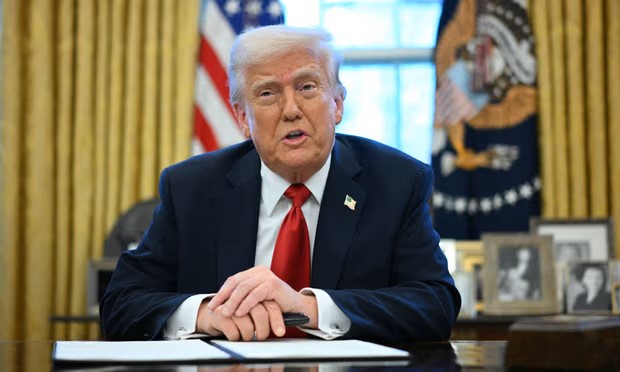A significant legal challenge has emerged against President Donald Trump’s sweeping plan to drastically reduce the size of the federal workforce. US District Court Judge Susan Illston issued a temporary restraining order on Friday, halting the planned mass layoffs for two weeks. The judge’s decision stems from concerns that the Trump administration overstepped its authority by initiating these large-scale workforce reductions without seeking congressional approval. This legal intervention marks a crucial juncture in the ongoing power struggle between the executive and legislative branches regarding control over the federal bureaucracy. The lawsuit, filed by a coalition of labor unions, non-profit organizations, and local governments, argues that the administration’s actions violate established procedures for reorganizing government agencies.
Judge Illston’s ruling represents a potential setback for Trump’s stated objective of streamlining the federal government, a key element of his agenda since returning to office. The President has consistently advocated for a smaller, more efficient federal bureaucracy, characterizing many government programs and positions as unnecessary or wasteful. His administration, led by Elon Musk at the Department of Government Efficiency, has directed agencies to identify and eliminate non-essential positions, leading to widespread anxiety and uncertainty among federal employees. The two-week pause ordered by the court provides a window for legal arguments to be presented and for the court to assess the constitutionality of the administration’s actions.
Central to the legal dispute is the question of whether the President possesses the inherent authority to unilaterally restructure the federal workforce or whether such actions require congressional consent. The plaintiffs in the lawsuit contend that the magnitude of the proposed layoffs and their potential impact on essential government services necessitate congressional involvement. They argue that the administration’s actions bypass established legal processes and threaten to disrupt vital public services. The judge’s temporary restraining order suggests a preliminary agreement with this argument, highlighting the potential legal vulnerability of the administration’s approach.
The Trump administration’s push for workforce reductions represents a broader effort to reshape the federal government according to its ideological priorities. This effort has targeted a wide range of agencies and programs, including USAID, diversity initiatives, and other government offices. The administration argues that these cuts are essential for improving government efficiency and eliminating redundancy. However, critics argue that the cuts are politically motivated and threaten to undermine vital public services, particularly those aimed at vulnerable populations. The legal challenge to the layoffs adds another layer of complexity to this ongoing debate.
The court’s intervention highlights the increasing judicial scrutiny of the Trump administration’s policy initiatives. Several of the administration’s signature policies, including those related to immigration and government spending, have faced legal challenges and setbacks. These legal battles underscore the tension between the executive branch’s desire to implement its agenda and the judiciary’s role in upholding the rule of law and ensuring adherence to established legal procedures. The temporary restraining order in the workforce reduction case signals a potential legal roadblock for the administration’s plans and sets the stage for a potentially protracted legal battle.
The outcome of this lawsuit holds significant implications for the future of the federal workforce and the balance of power between the executive and legislative branches. If the court ultimately rules in favor of the plaintiffs, it could significantly curtail the administration’s ability to implement its downsizing plans without congressional approval. This would likely force the administration to negotiate with Congress, potentially leading to a compromise that balances the competing interests of efficiency and preserving essential government services. The case also underscores the important role of the judiciary in safeguarding the integrity of the democratic process and ensuring accountability within the executive branch. The legal challenge to the mass layoffs represents a critical test of the limits of presidential power and its impact on the federal workforce and the delivery of essential government services.


